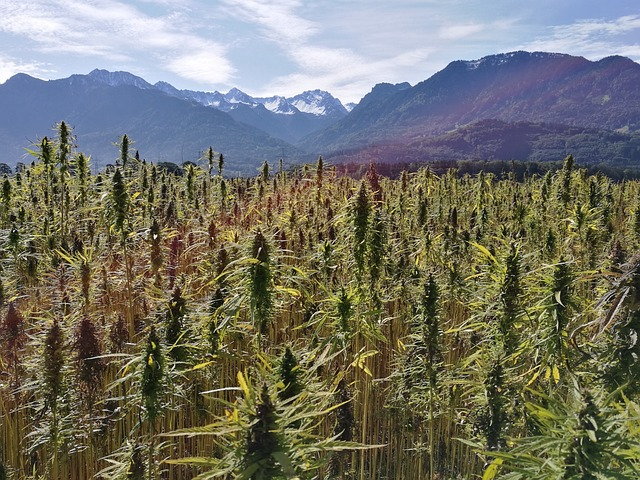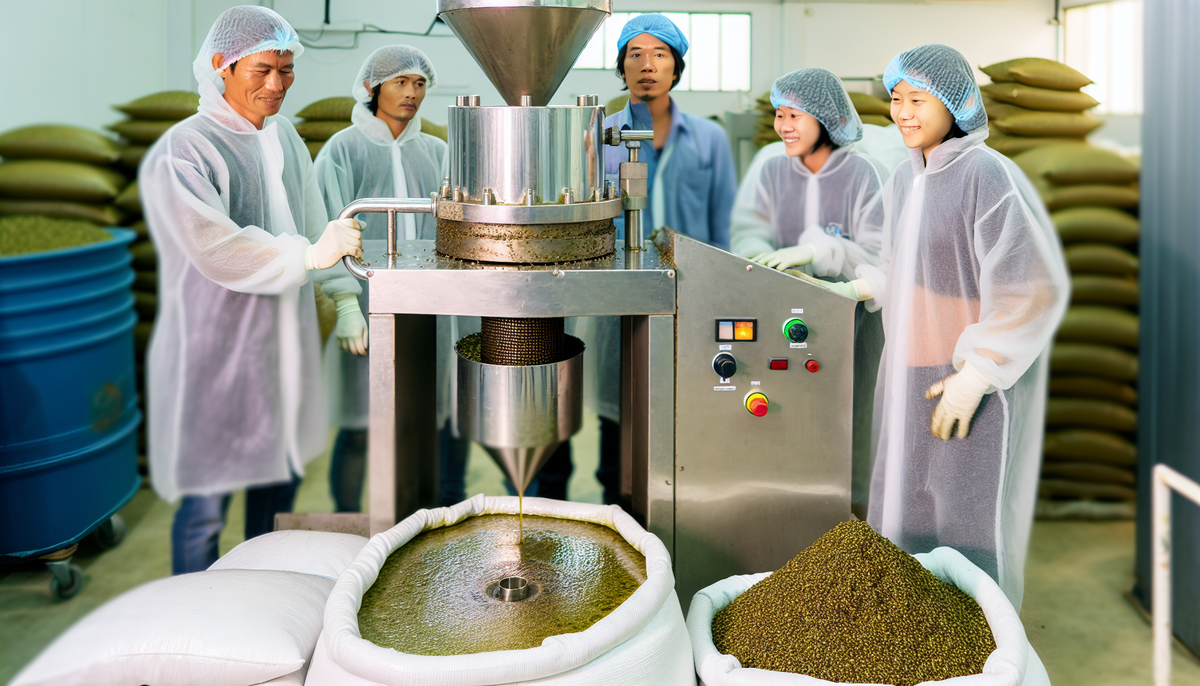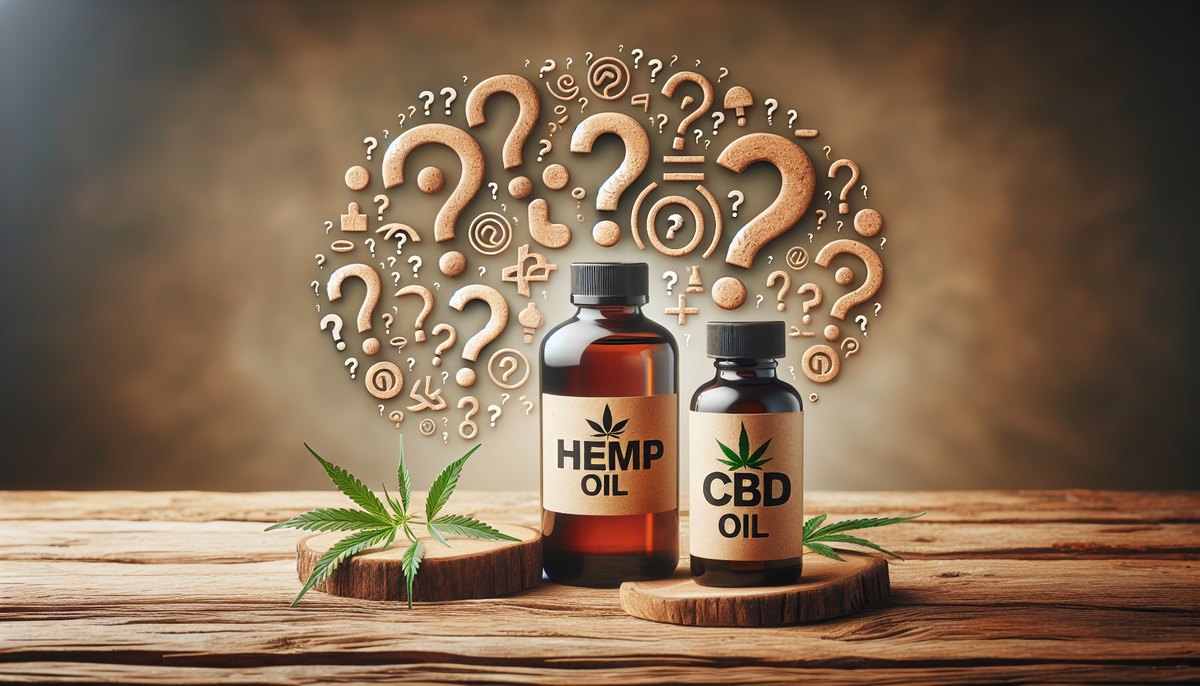Does Hemp Oil Contain CBD? Facts and Common Misconceptions
Written by: Hunter Podell, Subject Matter Expert and Website Founder
Published: March 15, 2024; Last updated: April 6, 2024
- 1. Key Takeaways
- 2. Understanding Hemp Oil and Its Components
- 3. The Extraction Process: Seed vs. Plant Material
- 4. Clarifying the CBD Content in Hemp Oil
- 5. Hemp Products and Labeling Confusion
- 6. The Health Benefits of Hemp Oil Without CBD
- 7. Comparing Hemp Seed Oil and CBD Oil
- 8. Legal Considerations and Market Trends
- 9. Incorporating Hemp Oil into Your Routine
- 10. The Role of Third-Party Testing
- 11. Summary
- 12. Frequently Asked Questions
- 12.1 Is hemp oil the same as CBD oil?
- 12.2 What percentage of CBD is in hemp oil?
- 12.3 Which is better for pain, CBD or hemp?
- 12.4 Does hemp always contain CBD?
- 12.5 What are the health benefits of hemp oil?
- 13. References
Curious about “Does hemp oil contain CBD”? Hemp oil, pressed from the seeds of the cannabis sativa plant, generally lacks CBD—unlike CBD oil, which is rich in cannabidiol. This guide will navigate you through the components of hemp oil, its cultivation without CBD, and what that means for you as a consumer when asking, “Does hemp oil contain CBD?”
Key Takeaways
Hemp oil, also known as hemp seed oil, is derived from the seeds of the cannabis sativa plant and contains negligible amounts of CBD, instead being rich in nutrients like essential fatty acids and vitamins.
CBD oil is extracted from the flowers, leaves, and stems of the cannabis plant and is sought for its potential therapeutic benefits, such as anxiety and pain relief, due to its high CBD content.
Due to the misconception that hemp oil contains CBD, there needs to be labeling clarity in the market; thus, the FDA has set regulations for accurate labeling to ensure safety and proper consumer information.
Understanding Hemp Oil and Its Components

Hemp oil, also known as hemp seed oil, comes from the seeds of the cannabis sativa plant. It is extracted through a cold pressing process to preserve its natural properties. This oil is known for its nutrient-rich profile, boasting a range of essential fatty acids that benefit our health. Despite this, a common misconception is that hemp oil contains CBD, a compound found in the cannabis plant known for its potential therapeutic benefits. In reality, hemp oils, including hemp seed oil, do not contain CBD and are part of a larger category of seed oils.
However, don’t expect to find a significant amount of CBD in hemp oil. In simple terms, hemp oil includes negligible amounts of CBD. Recognizing this aspect is essential as it shapes the oil’s benefits and applications. So, if hemp oil doesn’t contain CBD, what exactly does it have?
Hemp oil is rich in nutrients, including essential fatty acids, vitamin E, and minerals such as phosphorus and potassium. These nutrients make hemp oil a good choice for those looking to incorporate a nutrient-dense oil into their diet. Contrarily, CBD oil, derived from the flowers, leaves, and stems of the cannabis plant, is abundant in CBD, making it a preferred choice for those seeking the benefits of CBD.
The Extraction Process: Seed vs. Plant Material

Understanding the extraction process of hemp and CBD oil can help clear up some confusion about these oils. To start with, hemp oil is obtained from the seeds of the cannabis sativa plant by cold pressing, a method known for preserving natural nutrients and flavors. This process typically involves using a seed press machine and results in an oil with a nutty flavor, ranging in color from dark to clear light green.
On the other hand, CBD oil is extracted from the plant material of the cannabis plant, specifically the flowers, leaves, and stems. The preferred method for CBD oil extraction is CO2 extraction due to its efficiency and absence of chemical residues. High-quality CO2 extraction units are employed for this process, which yields a potent CBD oil. ¹
Essentially, the fundamental difference between these oils stems from the part of the cannabis plant they are extracted from and the extraction methods used. Hemp seed oil, rich in nutrients, is derived from the seeds, while CBD oil, rich in CBD, is derived from the plant material.
Clarifying the CBD Content in Hemp Oil
Let’s cut to the chase: does hemp oil contain CBD? The short answer is – a little. Hemp oil contains only trace amounts of CBD, and this is because it’s primarily derived from hemp seeds, which typically have minimal levels of CBD. Therefore, if you’re buying hemp oil expecting a high CBD content, you may be taken aback.
This fact is crucial to understand as it directly impacts the benefits you can expect from hemp oil. Lacking significant CBD content, hemp oil won’t offer the same potential therapeutic benefits as CBD, like possible relief from anxiety, pain, or inflammation.
On the flip side, CBD oil, derived from the flowers, leaves, and stems of the cannabis plant, is rich in CBD. This makes it the oil of choice for those looking for the potential therapeutic benefits of CBD.
Hemp Products and Labeling Confusion

Given the differences in CBD content between hemp oil and CBD oil, it’s not surprising that there needs to be more clarity when it comes to labeling. Some products on the market need to be labeled with accurate levels of CBD – some have less CBD than indicated, while others have more. This can cause considerable confusion for consumers attempting to understand the world of hemp and CBD products.
Inaccurate labeling can lead to a range of potential problems. For example, individuals could test positive for THC in drug screenings if they consume a product containing more THC than stated on the label. This can have significant repercussions, especially for those in industries or institutions with strict THC usage policies.
To mitigate these issues, The FDA’s Cannabis Product Committee (CPC) has implemented strategies and policies to regulate cannabis products. These rules require hemp oil and CBD oil products to meet specific safety standards and labeling requirements, including accurate listings of product contents and the actual amount of the product contained within the packaging.
The Health Benefits of Hemp Oil Without CBD
If hemp oil doesn’t contain much CBD, what are its benefits? Well, even without CBD, hemp oil still offers a range of potential health benefits. It’s a rich source of essential fatty acids, crucial components of a balanced diet.
For instance, hemp oil could provide cardiovascular benefits, such as lowering blood pressure and improving cholesterol levels. This makes hemp oil good for those looking to support their cardiovascular health. ²
Moreover, hemp oil has the potential to support skin health. It could address inflammatory skin conditions, alleviate symptoms of atopic dermatitis, and promote a soft and supple skin texture. So, even without CBD, hemp oil still has a lot to offer.
Comparing Hemp Seed Oil and CBD Oil
To further clear up any confusion, comparing hemp seed oil and CBD oil side by side is essential. As mentioned earlier, the hemp seed oil is derived from the hemp plant’s seeds and is rich in vitamins and essential minerals like vitamin E, phosphorus, and potassium. ⁴
Contrarily, CBD oil originates from the flowers, leaves, and stems of the cannabis plant. It’s rich in CBD and has been found to alleviate symptoms of potentially:
anxiety
neurological disorders
heart health issues
certain types of pain
This is due to its anti-inflammatory properties.
While hemp seed oil is a rich source of essential nutrients, CBD oil provides therapeutic effects for specific conditions. Understanding these differences is necessary to make an informed choice based on your needs.
Legal Considerations and Market Trends
The legalities surrounding hemp oil and CBD oil can be considerably intricate. For instance, hemp seeds and their oils are permissible within the legal framework as long as the product does not contain any THC. However, CBD products derived from marijuana are prohibited unless an individual possesses a Schedule I license.
Regarding market trends, the global market for hemp oil is anticipated to experience significant growth. The industrial hemp market size is estimated to rise from $6.8 billion in 2022 to $18.1 billion in 2027, at a CAGR of 21.6%. Moreover, the global industrial hemp market will expand from USD 6.63 billion in 2022 to USD 31.98 billion by 2030. ³
These legal considerations and market trends directly impact the availability and usage of hemp oil and CBD oil, emphasizing the importance of staying updated about the evolving landscape.
Incorporating Hemp Oil into Your Routine

So, now that you know the differences between hemp oil and CBD oil, how can you incorporate these into your daily routine? As a starting point, due to its nutritional benefits, dietary hempseed oil can be consumed as a supplement. Drinking a daily dose of 1–2 teaspoons (5–10ml) of hemp oil is recommended. However, it’s essential to be aware of potential side effects. Some people might experience:
diarrhea
changes in appetite and weight
fatigue
upset stomach
When integrating hemp oil into their diet. Always start with a small dose and monitor how your body reacts.
CBD oil, on the other hand, can be employed for specific therapeutic purposes, such as potential relief from anxiety, pain, or inflammation. Make sure to consult your doctor or a health professional before incorporating CBD oil or CBD oils into your routine, especially if you are on medication or have existing health conditions.
The Role of Third-Party Testing
Lastly, let’s delve into the role of third-party testing. Third-party testing plays a crucial role in the world of hemp and CBD oil products. It involves sending CBD products to independent laboratories for assessment and providing an impartial analysis to verify CBD’s chemical properties and potency.
Such transparency is crucial for consumers to make informed purchasing decisions. It helps ensure that your product is safe, high-quality, and contains the advertised amount of CBD.
Furthermore, third-party testing scrutinizes various characteristics of hemp oil products, such as cannabinoid content, terpene profile, and the absence of contaminants. This helps guarantee the product’s safety and quality.
Summary
In conclusion, while hemp oil and CBD oil both come from the cannabis plant, they are fundamentally different in their composition, extraction methods, benefits, and legal considerations. Hemp oil, derived from hemp seeds, is a nutrient-rich oil with various health benefits but contains little to no CBD. On the other hand, CBD oil, derived from the plant material, is rich in CBD and offers potential therapeutic benefits.
Understanding these differences is essential in making informed choices about these oils. Whether you’re looking for a nutrient-dense oil to incorporate into your diet or a therapeutic oil to help with specific conditions, knowing what you’re buying and what to expect is crucial. As always, it’s essential to do your research, consult with health professionals, and choose products that have been third-party tested for safety and quality.
Frequently Asked Questions
Is hemp oil the same as CBD oil?
No, hemp oil and CBD oil are not the same. Hemp oil is derived from hemp seeds and has little to no CBD content, while CBD oil is extracted from the leaves, flowers, and stalks of the hemp plant to contain high levels of CBD.
What percentage of CBD is in hemp oil?
Hemp oil typically contains 10-15% CBD and no THC if the concentration is less than 0.3%. CBD has been shown to provide relief from various symptoms.
Which is better for pain, CBD or hemp?
CBD is more potent than hemp for pain relief and relaxation, as it is a non-psychoactive compound derived from the Cannabis sativa plant, known to influence mood, sleep, and pain relief.
Does hemp always contain CBD?
Yes, hemp always contains CBD, but not all hemp-derived oils contain CBD, as it depends on which part of the hemp plant is used.
What are the health benefits of hemp oil?
Hemp oil provides benefits like improving cardiovascular health, supplying essential fatty acids, and promoting skin health. Incorporating it into your routine can support overall well-being.
References
Lazarjani, M. P., Young, O., Kebede, L., & Seyfoddin, A. (2021). Processing and extraction methods of medicinal cannabis: a narrative review. Journal of cannabis research, 3(1), 32. https://doi.org/10.1186/s42238-021-00087-9
Rodriguez-Leyva, D., & Pierce, G. N. (2010). The cardiac and haemostatic effects of dietary hempseed. Nutrition & metabolism, 7, 32. https://doi.org/10.1186/1743-7075-7-32
Industrial hemp market size, analysis, growth, report, 2032. Industrial Hemp Market Size, Analysis, Growth, Report, 2032. (n.d.). https://www.fortunebusinessinsights.com/industrial-hemp-market-102459
Farinon, B., Molinari, R., Costantini, L., & Merendino, N. (2020). The seed of industrial hemp (Cannabis sativa L.): Nutritional Quality and Potential Functionality for Human Health and Nutrition. Nutrients, 12(7), 1935. https://doi.org/10.3390/nu12071935

Written by Hunter Podell - Subject Matter Expert and Website Founder
Hunter has 8+ years of experience as a content writer and digital marketer. Earning his chops marketing in the healthcare space for over 5 years, Hunter is extremely familiar with the rules and regulations required to deliver high quality content that answers the user's needs while adhering to strict guidelines.
Join the CBDeals Club!
Get 10% off your first order and receive our best and exclusive promotions directly to your inbox!



